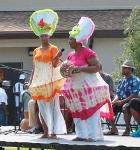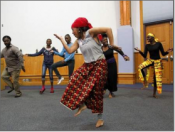- Throughout the Civil War, Texas was not as closely monitored as other battle states. For this reason, many slave owners went to Texas with their slaves. With its relatively negligible Union presence, slavery continued there for much longer.Image

- On June 19, 1865, Union General Gordon Granger led thousands of federal troops to Galveston, Texas to announce that the Civil War had ended, and slaves had been freed.Approximately 250,000 Texan slaves had no idea that their freedom had been secured by the government.
- Juneteenth -- a blending of the words June and nineteenth -- is the oldest known US celebration of the end of slavery. It commemorates June 19, 1865.
- When freed slaves tried to celebrate the first anniversary of the announcement a year later, they were faced with a problem: Segregation laws were expanding rapidly, and there were no public places or parks they were permitted to use. So, in the 1870s, former slaves pooled together $800 and purchased 10 acres of land, which they deemed "Emancipation Park." It was the only public park and swimming pool in the Houston area that was open to African Americans until the 1950s.
- In the early years, little interest existed outside the African American community in participation in the celebrations. In some cases, there was outwardly exhibited resistance by barring the use of public property for the festivities. Most of the festivities found themselves out in rural areas around rivers and creeks, church grounds.
- Certain foods became popular and subsequently synonymous with Juneteenth celebrations such as strawberry soda-pop. More traditional and just as popular was the barbecuing with watermelon, Tea Cakes, Red Velvet Cake, among other items.
- In 1980 “Emancipation Day in Texas” became a legal state holiday in recognition of Juneteenth. However, state offices do not completely close, as it is considered a "partial staffing holiday." Elsewhere, the holiday is also referred to as Emancipation Day, Freedom Day, and Black Independence Day.Image

- Many continue to celebrate Juneteenth 151 years later. Throughout the nation people host cookouts, parades, festivals, and other gatherings to commemorate.
- Juneteenth is recognized as a state holiday or special day of observance in 46 of the 50 states.
To learn more about the history of this unique holiday, just access the ACLD catalog from our website and search for books about Juneteenth.
Also, Dr. Patricia Hilliard-Nunn, a professor in the African American Studies program at the University of Florida, researched the history of plantations and slavery in Alachua County and created In the Shadow of Plantations as a result of her research. This video serves as a reminder of what life was like for those enslaved in Alachua County during this era.